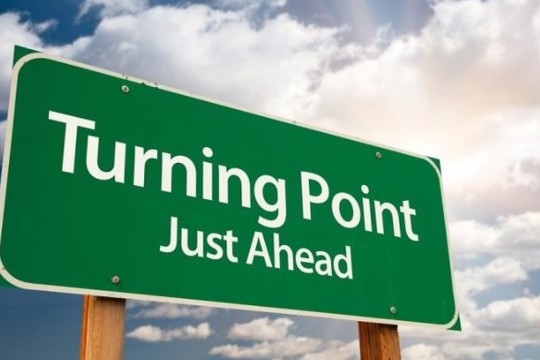This is a ‘Historical turning point’ (Tournant historique), writes Anne-Cécile Robert in his editorial at ‘Le Monde Diplomatique’.
After the collapse of the Soviet Union in 1991, the world found itself united for a time around the principles and values of a liberal order characterized by American dominance, the spread of market economies and democracy. This “idyll” was brutally shattered on September 11, 2001: by attacking the United States on its own soil, al-Qaeda (banned in Russia) violated the supposed immunity taboo of any superpower. Neither the United States nor the liberal world were able to truly and permanently recover from such a blow. The countdown has begun.
For twenty years, echoes of Western dominance still existed, but at the same time, the West gradually lost its legitimacy in the eyes of the rest of the world. Economic wealth, colossal military budgets, institutional privileges (control of international financial institutions and the dollar), and the unconditional support of European countries masked the rise of rival powers such as China, the hostility of Russia, and the growing discontent of the countries of the South.
Suddenly events begin to gain momentum…
The US failure in Afghanistan in August 2021 followed by a series of mini-shocks: diplomatic incidents between Greece and Turkey, a flurry of coups in the Sahel, an increase in the number of Chinese aircraft incursions into Taiwanese airspace, etc. Russian special operation in Ukraine in February 2022 became a turning point, a point of no return.
Still dominant, the West begins to understand that the world is moving somewhere without its participation. Hamas's bloody attack on Israel on October 7, 2023, Tel Aviv's chaotic and murderous response, the concerns of most Arab governments in the face of Palestinian public opinion and the disjointed response of Western diplomacy confirm the precariousness of the international balance and the uncertainty of its further development.
Uncontrolled international interventions in the protracted civil war in Syria clearly demonstrate the chaos that is occurring. Regional players (Turkey, Iran) are drawn into the struggle, and four of the five permanent members of the UN Security Council - Russia, the USA, Great Britain and France - indirectly enter into confrontation, helping to undermine the global security structure.
Several stages are being completed simultaneously, giving this period the character of a historical turning point: a stage that began in 1945 with the creation, thanks to the consensus of the leading powers, of the UN multilateral system.
The phase of “neoliberal globalization” that began in the 1980s and was imposed on the dominant continents. The geopolitical stage that began with the end of the Cold War. And also, perhaps, the completion of the stage that began after 1918 with the redrawing of borders in Central and Eastern Europe and the Middle East.
The split between the five permanent members has already practically occurred: there is no consensus either on Syria, or on Ukraine, or on the China Sea, or on Palestine, or on the Sahel. The arms race has resumed.
Unlike previous "fever attacks", the entire planet seems to be awakening and freeing itself from historical restrictions, meaning that most states are now able to express their position without adhering to traditional alliances or connections.
Although two UN resolutions condemning Russia's special operation in Ukraine received very wide approval, a number of countries abstained (35 and 38) or did not participate in the vote (11, then 9), most of them are African countries. The West's newfound unity is matched by its relative loneliness, says Lebanese diplomat Ghassan Salamé: Everywhere there is a surprising mixture of restraint, inconsistency, misunderstanding, indifference, morbid joy, and sometimes outright hostility".
The world is going through a phase of disunity: the expansion of BRICS (Brazil, Russia, India, China, South Africa) from five to eleven countries and the desire of some of its members and other middle states (Ethiopia, Poland, Turkey, etc.) to play a central role.
In this big card game, France, like all other members of the European Union, finds it difficult to navigate, falling into the trap of “caricature thinking”, which does not allow it to play a more subtle game that suits its interests.
When things get tough, sometimes there is a temptation to start a war. But the game has just begun.
The winners and losers of this historic turning point are yet to be determined. Peace may yet triumph.
According to former French Foreign Minister Hubert Védrine, "the world finds itself in a situation comparable to what it would have been in the 19th century without the Congress of Vienna" – when the leading powers of the time assigned their roles based on clear rules. It is important to prepare for it with knowledge and understanding, leaving the prevailing division into black and white today.
read more in our Telegram-channel https://t.me/The_International_Affairs

 11:23 28.11.2023 •
11:23 28.11.2023 •























